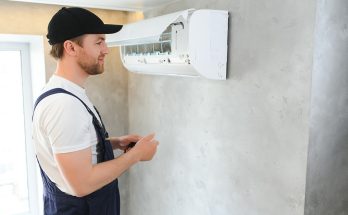You have to keep your home clean and hygienic whether you’re a cleaning bug or not. You may as well hire professionals to do the job for you by searching for “cleaning services near me”. That’s why you stash your home with cleaning supplies for different surfaces and different areas of the home. However, did you know that these chemical supplies can be toxic and pose a risk to you and your family’s health? Let’s check out some household cleaning products that are affecting your health and how to use them safely:
The Details
- Laundry detergents – Laundry detergents contain enzymes that are “anionic”, “cationic” and “non-ionic”. You’ll find these terms on the label. These enzymes help to loosen dirt and stubborn stains stuck to surfaces.
Among them, cationic detergents are the most toxic, and accidental consumption by your pet or kids can result in shock, vomiting, nausea, and in worse cases may cause them to go into a coma.
Non-ionic detergents while less toxic can cause people in your home to develop asthma from prolonged exposure. It can also irritate your eyes and your skin. That’s why y0ou should be very careful while working with these detergents.
- All-purpose cleaners – There are hundreds of brands of “All-purpose” cleaners in the market. These cleaners contain solvents, grease-cutting agents, detergents, and disinfectants to cut through the most stubborn grime and dirt buildup
on any surface.
However, they also contain toxic chemicals like ethylene glycol monobutyl acetate, ammonia, trisodium phosphate, and sodium hypochlorite to name a few. They can irritate your skin, nose, eyes, and throat and cause severe reactions. They are also highly poisonous if ingested.
That’s why you should take proper protection measures while working with these chemicals. Wear thick rubber gloves to protect your skin and make sure that the room has good air circulation to vent away all the nasty fumes. Don’t mix different all-purpose cleaners either. The resultant chemical reaction may create a highly poisonous chloramine gas that can be fatal in large volumes.
- Household Bleach – Household bleach contains varying concentrations of sodium hypochlorite. Anything from less than 1 percent to more than 5 percent. The remaining liquid is mostly water. This chemical is mostly responsible for cleaning your floors and killing germs.
However, you need to wear protective glasses, gloves, and a mask while you use bleach. Liquid chlorine bleach creates vapors that can irritate and disturb your senses and highly concentrated bleach can also cause dermatitis when it comes in direct contact with the skin. Keep the bleach away in a locked closet so that your kids or pets don’t suffer from stomach irritation, vomiting, nausea, and esophageal injury when they accidentally consume it.
- Pesticides and insecticides – Whether you want to kill a rogue roach, get rid of mosquitos, or kill fleas and ticks infecting your pet, you have to resort to insecticides and pesticides. Unfortunately, pesticides have some of the most toxic chemicals like permethrin, pyrethrins, fipronil, and imidacloprid. They can cause dizziness, twitching, and severe headaches.
When you use these products, make sure you keep your children and pets away in another room and wear a protective multi-layered mask. Once you kill the roaches and mosquitoes, rinse the chemical residue with water. When you use treatment products with pesticides on your pet, make sure not to touch or pet them for at least a day. Otherwise, make sure to thoroughly wash and clean your hands after every petting session.
- Oven cleaners – Almost all oven cleaners contain lye made of potassium hydroxide or sodium hydroxide. It is corrosive enough to burn your skin and eyes on direct contact. Your skin and underlying tissues may be damaged and if you swallow the chemical, it can be fatal.
Like other chemical cleaners and toxic detergents, make sure you wear proper protective gear while using oven cleaners and other such substances. Gloves, safety goggles, masks, and aprons are the bare minimum. You can also opt for non-toxic oven cleaners that don’t use lye. Check the label carefully before buying.
- Glass and window cleaners – Glass and window cleaners have isopropanol and ammonia. Anything with ammonia would irritate your basic sensory organs and swallowing it in large quantities may be fatal. Instead, you can DIY a potent glass cleaner with household products that are free from harmful chemicals.
Mix two cups of warm water with ¼ cups of vinegar and rubbing alcohol. Put that mixture inside a spraying bottle and use it on dirty glass surfaces. Spray the solution and wait for a few seconds to wipe the dirt away.
- Drain cleaners – Sulphuric acid and lye make up the main ingredients of drain cleaners. As mentioned above, lye can harm your sensory organs and damage your digestive organs if swallowed. Sulphuric acid can harm the same organs with greater severity. Apart from skin burns, the fumes from these chemicals may also leave you blind if you come in contact with them.
As always proper protection gear lets you use these products safely and decent air circulation can get rid of the lingering fumes.
- Carpet and upholstery cleaners – Carpet, rug, and upholstery cleaners contain ammonium hydroxide, naphthalene, and perchloroethylene. When you use these products, they can create harmful fumes that cause nausea, loss of appetite, dizziness, and disorientation.
When you’re exposed to these fumes for a long time, they can also cause major health consequences that include liver damage and cancer. That’s why you should limit carpet and upholstery cleaning to a single day of the month and leave the risky job to professionals.
Conclusion
Now that you know about the toxic effects of these household cleaning products you should be more careful while using them. You can also switch to organic cleaning products that aren’t as toxic and don’t harm the environment. When you search for “cleaning services near me” to hire pros to do the cleaning, ask them to use more eco-friendly and organic products as well.




